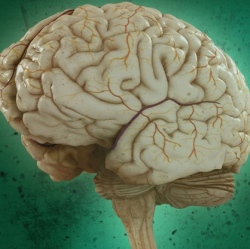
Researchers have developed and tested a molecule that has the ability to disrupt the body’s regulation of cancer cells, causing them to self-destruct rather than multiply. The method was found to be effective when tackling dormant brain cancer cells that existing treatments are ineffective at eradicating.
The study focused on a UC Davis-developed molecule known as UCD38B, looking at its effects on human glioma cells, which are responsible for an aggressive form of brain cancer. The targeted cells are produced by glial cells in the brain, which themselves provide structural protection to neurons.
While conventional treatments such as surgery, chemotherapy and radiation therapy are effective at removing active cancer cells, they often fail to eradicate a population of dormant, non-dividing cells that can later activate and regenerate tumors.
Unlike conventional treatments, UCD38B is effective at combating both dormant cells and the dividing cells destroyed by other treatments. The molecule works by targeting the urokinase plasminogen activator system, a cellular regulatory system that’s central to the healing process, essentially telling cells whether to proliferate or destroy themselves.
The system has been found to be highly active in many aggressive cancers including gliomas, and is thought to play a role in cancerous cell growth and metastasizing.
UCD38B disrupts the intercellular part of the system, sending signalling components to the mitochondria near the cancer cell nucleus rather than the cell surface. In doing so, the destruction of the target cell is triggered, whereas before it would have been told to proliferate.
